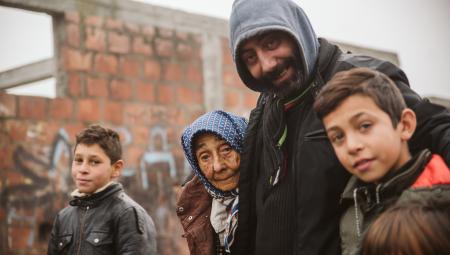Background
Over half of the people living with dementia in the UK are in the advanced stages.
People living with advanced dementia need help with personal care activities. These
include washing and going to the toilet. Help with these activities is often needed for
between 5.5-6.5 years. Sometimes the person with living dementia may refuse help
with care. For example, they may say no, push the carer away, not co-operate, or
stiffen their body. Individuals living with dementia refuse care for many reasons. The
carer may not approach the person in an acceptable way. The person may not
understand the carer’s goal. They may be in pain, feel embarrassment, feel agitated,
or have high dependency. Refusals of care can cause distress and have negative
consequences. These include uncompleted care, poor hygiene, or infections. Carers
may use restraint, medications, or bring in mental health teams. Sometimes care
homes move individuals to specialist inpatient services. Refusals of care are common
in care-home settings. Guidance calls for more care-home staff training for dementia
care.
Project Aims
To develop care-home staff training to optimise help with personal care and reduce
refusals of care. Then test whether the training can be delivered and is acceptable.
Aiming to improve care for people living with advanced dementia in care homes.
Project Activity
- Working with people in care-home communities to co-produce a training intervention.
· Learning about refusal of care and staff training contexts and processes in four care-homes. Semi-structured interviews with managers, care-home staff, residents, and relatives. Review of documenting processes and policies.
· Using information from the fellow’s previous research and care home contexts. Consult with key individuals, including care-home residents, care home staff, relatives, dementia specialists, and clinical psychologists.
· Meetings with a co-production team. Including researchers, people with dementia, care-home staff, and relatives. Develop the training intervention for care-home staff (OPTIMISED-DEMCARE).
· Try the training in two care homes then refine it for Stage 2. - Testing whether delivering the training is acceptable. Checking whether relevant research processes work in care homes. A Cluster randomised feasibility trial and process evaluation.
· Deliver the training in six care homes. Invite all care staff to take part. Check whether two further care homes will take part in the research with no training option. Assess whether staff and residents want to take part. See whether staff engage with the training and participants answer questionnaires.
· Examine barriers and facilitators for the delivery of the training. Examine research processes. Find out how care homes used the training. - Moving forward
· Grant application writing for a future trial.
· Sharing the results: Through care home organisations and groups. Via care home forums and newsletters. Via meetings with care-home communities. Using social media and a study website. Publishing and presenting for practice and academic audiences.
Anticipated or actual outputs
For people living with advanced dementia:
· Better care, personal hygiene, and relationships with care-home staff
· Less conflict, use of restraint and moves to inpatient services
For care-home staff:
· Increased confidence, skills, and job satisfaction
· Less distress
Who is involved?
PI and corresponding researcher: Tamara Backhouse, UEA.
Also involved:
Eneida Mioshi, UEA
Anne Killett, UEA
Rowan Harwood, University of Nottingham
Yun-Hee Jeon, University of Sydney
Contact
Tamara.Backhouse@uea.ac.uk





